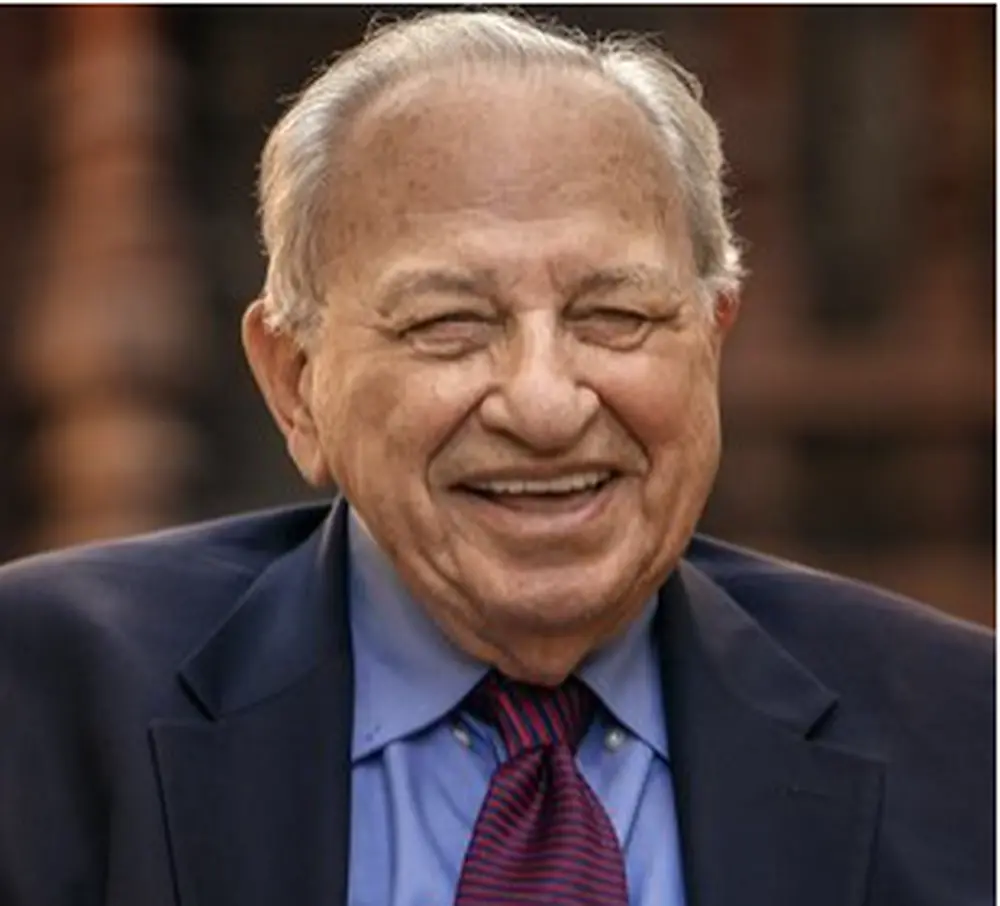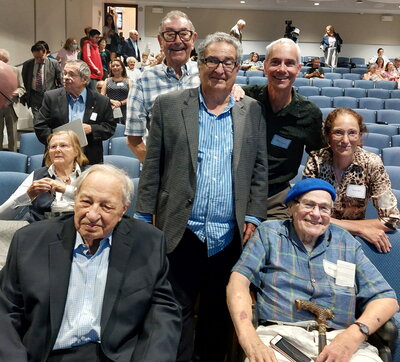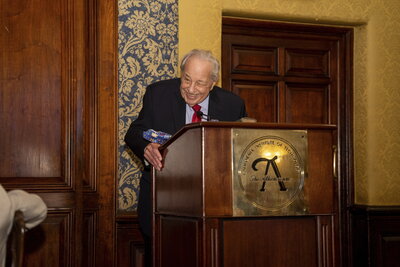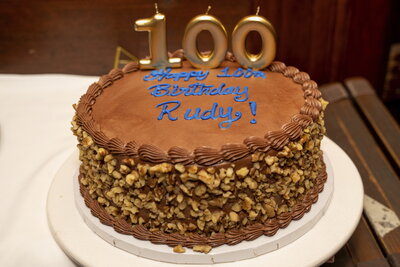
Nobel laureate and chemistry professor Rudolph A. (Rudy) Marcus celebrated his 100th birthday in July doing what he loves, talking about chemistry at a symposium that was organized in his honor by the California Institute of Technology, where he has been a professor since 1978.
Previously, Marcus was a faculty member in chemistry at the University of Illinois Urbana-Champaign, joining the department in 1964 to work on electron transfer and other aspects of reaction dynamics. At Caltech, he turned his attention to the fields of unimolecular reactions, intramolecular dynamics, and electron transfer processes, and in 1992, received the Nobel Prize in Chemistry for “his contributions to the theory of electron transfer reactions in chemical systems.”
Illinois chemistry professors Martin Gruebele and Nancy Makri were among the current and former colleagues and students who joined family and friends of Marcus for his 100th birthday symposium on July 21, 2023, at Caltech.
The John G. Kirkwood and Arthur A. Noyes Professor of Chemistry at Caltech, Marcus still works in his campus office, leads a research group, and publishes papers, according to the Los Angeles Times.

“Rudy still is in excellent shape and super sharp,” Makri said.
Marcus graduated from McGill University in Montreal with a BS in chemistry in 1943 and his PhD in 1946, studying the kinetics of nitration under the supervision of Carl Winkler. As a postdoctoral fellow with E. W. R. Steacie at the National Research Council of Canada, he worked on gas phase reaction rates, then changed focus to theoretical chemistry and began a second postdoc with Oscar K. Rice at the University of North Carolina, where he formulated what came to be known as RRKM (Rice-Ramsperger-Kassel-Marcus) theory.
His theory, now known as Marcus theory, provides a thermodynamic and kinetic framework for describing one electron outer-sphere electron transfer reactions, such as those that operate in the biochemical processes of respiration and photosynthesis.
Marcus started his independent research career at the Polytechnic Institute of Brooklyn, where he launched an experimental program on gas and solution phase reaction rates, fully developed the RRKM theory, and worked on electron transfer. By 1960, he decided to focus exclusively on theory and joined the Illinois chemistry faculty a few years later.
In addition to the Nobel prize, Marcus has received seven awards and medals from the American Chemical Society and the National Medal of Science (1989), and he is a member of the National Academy of Sciences, and holds more than a dozen honorary doctorates, including one from the University of Illinois (1997).

